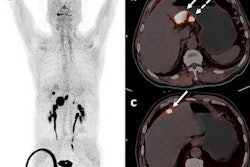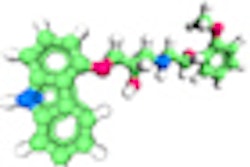Being fat or obese may be a benefit for gastric cancer patients who undergo adjuvant chemotherapy, according to a study from Turkey published online on 18 September in the European Journal of Cancer Care.
A group of overweight to morbidly obese patients treated for gastric cancer at the Dedeman Oncology Hospital of Erciyes University School of Medicine in Kayseri between February 2002 and September 2010 survived for a longer period of time and were disease-free for almost twice as long as thin or normal-weight patients with similar disease characteristics.
Radiation oncologist Dr. Celalettin Eroglu and colleagues conducted a retroactive study to examine how the body mass index (BMI) of gastric cancer patients affected disease-free survival, long-term survival, and overall survival.
"Overweight patients are exposed to a greater risk of surgical procedures due to obesity-related co-morbidities and increased incidence of postoperative complications," the authors wrote. They were interested in learning how such patients fared when entering their second and ensuing phases of gastric cancer treatment.
Earlier peer-reviewed published analyses of gastric cancer patients had shown a positive association between longer survival and being overweight. "But none had shown that being overweight was an independent prognostic factor for long-term survival," they observed.
The research team of oncologists and radiation oncologists identified 152 patients who had undergone chemoradiotherapy following a gastrectomy and who survived at least 90 days following their surgeries.
Patients were categorized into two weight groups -- thin/normal and overweight -- based on their weight at the time of diagnosis. All patients received radiotherapy treatment, a total radiation dose of 45 Gy delivered in 25 fractions of 1.8 Gy over a five-week time period. During this time they also received chemotherapy. Patients who completed the treatment were subsequently prescribed four cycles of chemotherapy administered every four weeks.
After completion of all treatment, patients were followed monthly for the first six months, every three months for the next six months, and every six months thereafter.
Forty-seven overweight patients (31% of the total) were followed. They had an age range of 40 to 79 years, and a median age of 58 years. The 105 thin-to-normal-sized patients ranged in age from 22 to 85, with a median age of 55.
The median disease-free survival was more than double for the overweight patient group: 27 months compared to 13 months for the thin-to-normal-sized patients. Five year survival was also significantly better, at 42% compared to 17%.
Based on their research, the authors recommend that prior to adjuvant treatment gastric cancer patients should be encouraged to gain weight. They also recommended that additional studies with a larger sample size be undertaken to supplement their findings.



















